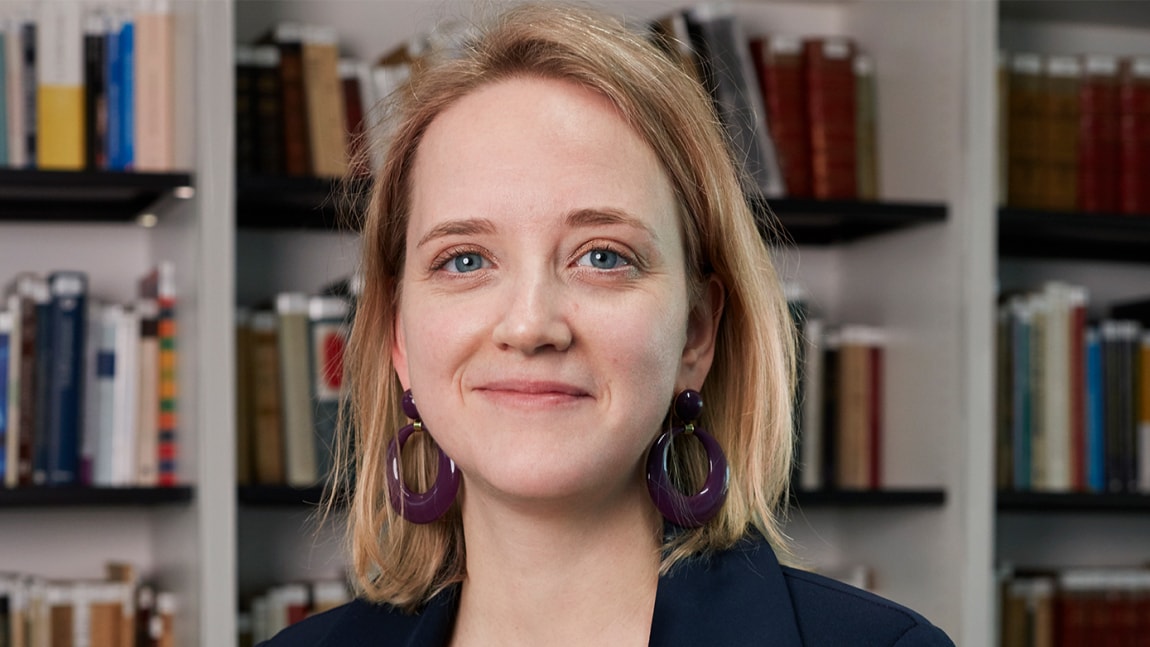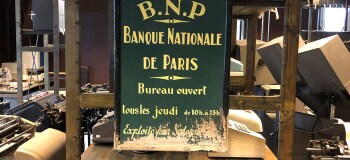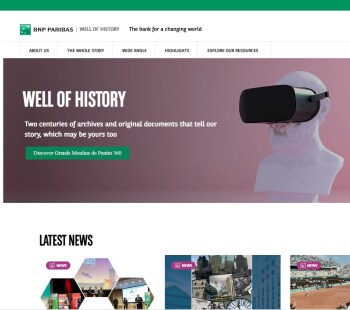A researcher supported by BNP Paribas
Anna Shapovalova, an associate researcher at Sciences Po Paris and a post-doctoral candidate at the University of Bologna, wrote her dissertation on the international dimension of the so-called “for example” major trials of the first five-year plan in the USSR (the Chakhty trial, the Industrial Party trial and the Vickers affair). As part of the International Congress on Business History in France, she received financial support from BNP Paribas for young researchers. She took part in a round table organised and hosted by Archives & History around her work and was able to exhange ideas with other invited specialists and participants and explore new avenues of research.
Why is it crucial to keep traces of business history?
M.L. : Companies are a reflection of our society. It is impossible to study our history without studying our companies. And it is in response to the new challenges facing our companies that BNP Paribas has now taken a stance to promote renewable energies, or, going back in time, that it promoted the development of steam power and electricity. Another real-world example: in 1953 the Bank created consumer credit, echoing the new era of homemaking. A project financed by the Bank says a lot about a given country and a given company at a given time. Company archives may seem to be of mere accounting or technical interest, but that’s not true at all! Thanks to them, BNP Paribas is as much an actor as a witness of the history of the transformations that have occurred in society and the economy worldwide, over the past two centuries. That’s why the Group attaches so much importance to the knowledge and dissemination of history and, through its Archives & History department, has endowed itself with a team of specialists dedicated to preserving and enhancing its heritage.
" Thanks to our archives, BNP Paribas is as much an actor as a witness of the history of the transformations that have occurred in society and the economy worldwide, over the past two centuries. "
How does this partnership fit in with your team’s missions?
M.L. : Our partnerships – this congress, the Historia prize, the History YouTubers Prize, or the prize in economic history to trecognise young researchers – meet a dual objective: raising awareness among researchers and reaching out to the general public by promoting greater appreciation of archives-based history. Archives & History – these are two complementary names. We can’t do history without archives, without sources, and the notion of archives is extremely broad. Archives have always been in the form of paper files and the history library; objects, photos, posters, etc. They now also come in the of born-digital archives, such as the Group’s integrated report. Our challenges can be summed up in four Cs: counselling the Bank’s departments to identify what is indeed its historical heritage; collecting these physical and digital resources; conserving them in our preservation centres, meaning setting up all the preventive items so that this heritage can be transmitted to future generations; and, lastly, communicating and providing access to this information to the Bank’s departments and to the outside public. Original documents can be consulted in the reading rooms in Dinan, Paris, Brussels or Rome, or at exhibitions. You can also find all our productions online. Feel free to subscribe to our newsletter and to contact us with any question!
" Our partnerships meet a dual objective: raising awareness among researchers and reaching out to the general public by promoting greater appreciation of archives-based history. "
Learn more about our historical archives:
conservation centers: France, Belgium, Italy
worldwide
objects in France
Well of History
To find out more about BNP Paribas’ historical archives and how to access our document resources, discover the BNP Paribas Well of History website.




